The Best Face Sunscreens Recommended by Star-Loved Skin-Care Experts

If you purchase an independently reviewed product or service through a link on our website, The Hollywood Reporter may receive an affiliate commission.
Not all sunscreens are created equal. Once upon a time, consumers were limited to suncare products that left a white residue, failed to protect against sun exposure, and were packed with harsh chemicals that destroy coral reefs. Luckily, companies have since gotten smart about our (and the environment’s) needs, but experts say that U.S. sunscreens have room for improvement.
More from The Hollywood Reporter
The 60+ Best Gifts for Men That Aren't All Power Tools or Boring Neckties
Brooklinen's Memorial Day Sale Promises Up to 65 Percent Off Star-Loved Bedding, Towels and More
Samsung's New Frame 4K TV Is on Sale for the Summer: Here's Where To Find the Best Deals
There are two types of sunscreens available in the U.S.: Chemical and mineral sunscreens. New York-based dermatologist and author Dr. Amy Wechsler tells The Hollywood Reporter that although she recommends using mineral sunscreens, she prefers to use European chemical sunscreens because they have more effective ingredients.
Related: The Best Self-Tanners for Getting a Spring Glow
“The U.S. hasn’t approved a new chemical sunscreen molecule in a really long time, in at least 20 years. Asia and Europe are ahead of us around the world” in terms of approving sunscreen ingredients, says Wechsler. The issue has even caught the attention of Congress: After Rep. Alexandria Ocasio-Cortez (D-N.Y.) asked the FDA to update their approval process of sunscreen ingredients (which currently fall under regulations for over-the-counter drugs, not cosmetics), a new bipartisan bill is in the works to address the issue.
Citing a recent New York Times article on the U.S.’ outdated sunscreen rules, Wechsler says, “If a molecule is not FDA-approved, it’s not allowed to be sold in the United States by definition. It doesn’t mean you can’t buy it on vacation in France and bring it home, but no one can sell it here. There are some places that sell French sunscreens illegally, but no one is cracking down on them — like the sunscreen police. But I definitely stock up on them when I travel.”
“Some chemical sunscreen ingredients are toxic for coral reefs. You shouldn’t wear them if you’re swimming in the ocean. Obviously, it’s fine to swim with them in a pool or just wear them, but we’re destroying coral reefs so quickly that some states like Hawaii have banned certain sunscreen chemical [ingredients],” says Wechsler.
What Are the Best Face Sunscreens?
“I often do a combination of sunscreens when I’m applying them to myself. I like to layer different ones and a lot of dermatologists do also. One does not have to do that,” Wechsler says. In addition to effective sunscreen, she recommends wearing UV-shielding clothing, sunglasses and hats for extra protection. Whether you’re looking for reef-safe products, the best clean sunscreens, moisturizers that double as sun protectants or safe options for your kiddos, we’ve rounded up some of the best face sunscreens recommended by skin care experts.
See the pros’ top picks below, and keep scrolling to find out the main differences between mineral and chemical sunscreens, what to know about broad spectrum vs. SPF protection and more.
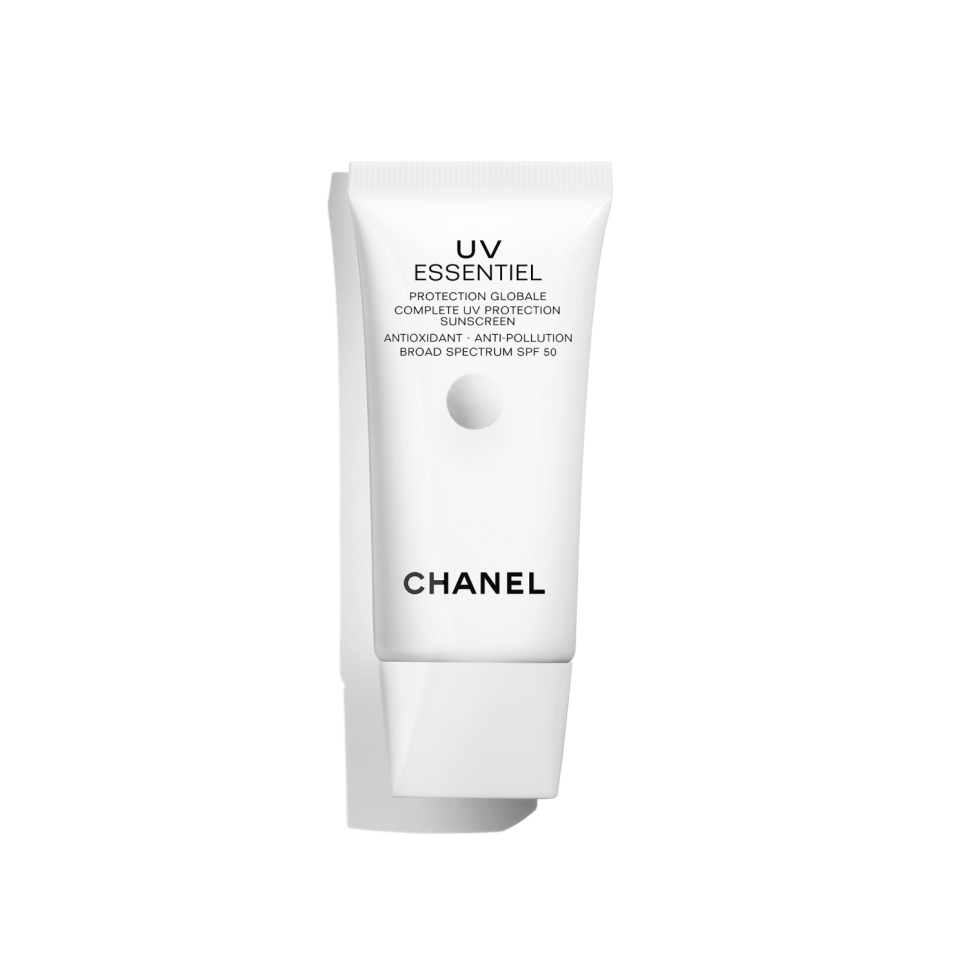
EXPERTS' PICK
Chanel UV Essential 50 Sunscreen
“My favorite sunscreen for day-to-day/my walk to work is the Chanel UV Essential 50 because it has 17.1 percent zinc oxide, but it’s changing,” says Wechsler. “I stocked up on it. I work with them on their skincare line. For an American sunscreen, it’s great. The Chanel sunscreen is so cosmetically elegant. It has to be. If the sunscreen is gross and goopy and oily, even if it’s a good one in the lab, practically speaking, who is going to use it?”
Chanel’s sunscreen also doubles as a skin moisturizer. Made of polyfractioned blue ginger and Tahitian gardenia extract formula, the product helps reduce the appearance wrinkles while offering sun protection. Its gel-cream texture is delightfully lightweight. (Celebrity makeup artist Beau Nelson is also a fan.)
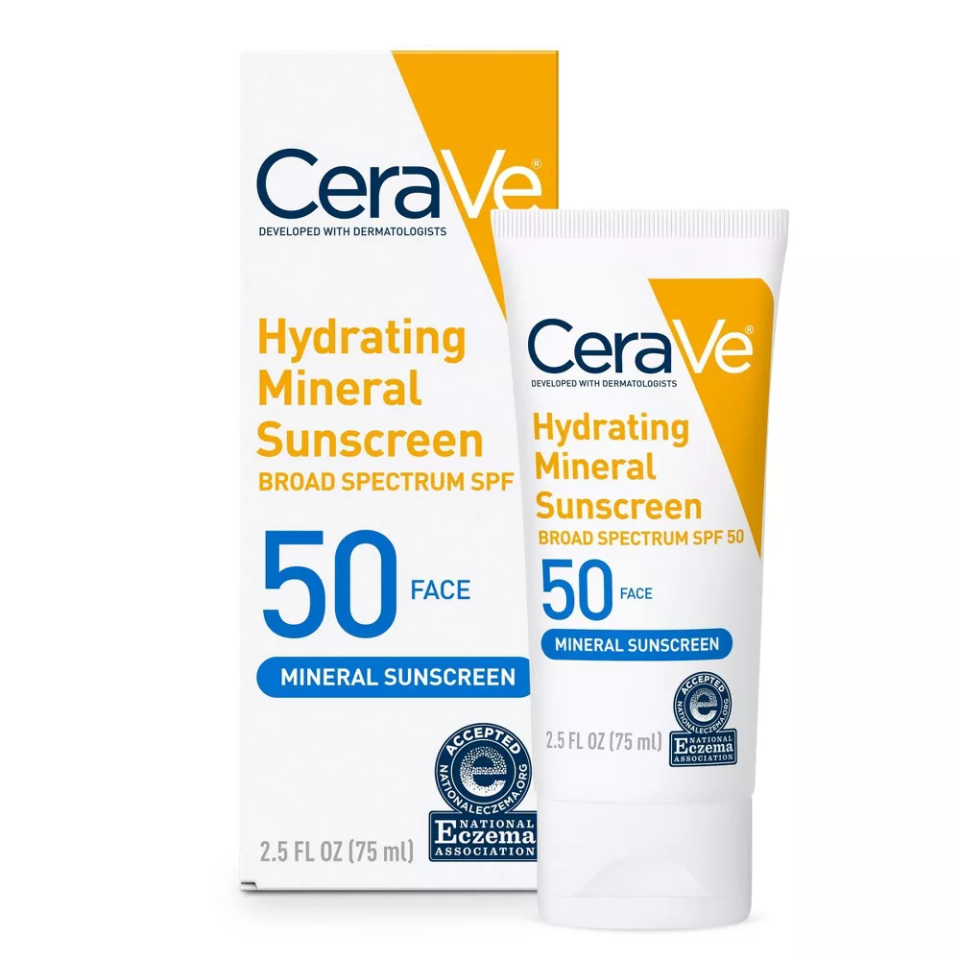
BEST FOR ECZEMA
CeraVe Hydrating 100% Mineral Sunscreen for Face SPF 50
Approved by the National Exczema Assocation, CeraVe’s Hydrating Mineral Sunscreen contains zinc oxide and titanium dioxide, and protects against UVA and UVB rays. The sunscreen is formulated with hyaluronic acid and three essential ceramides that are naturally found in the skin, helping to maintain and replenish the skin barrier.
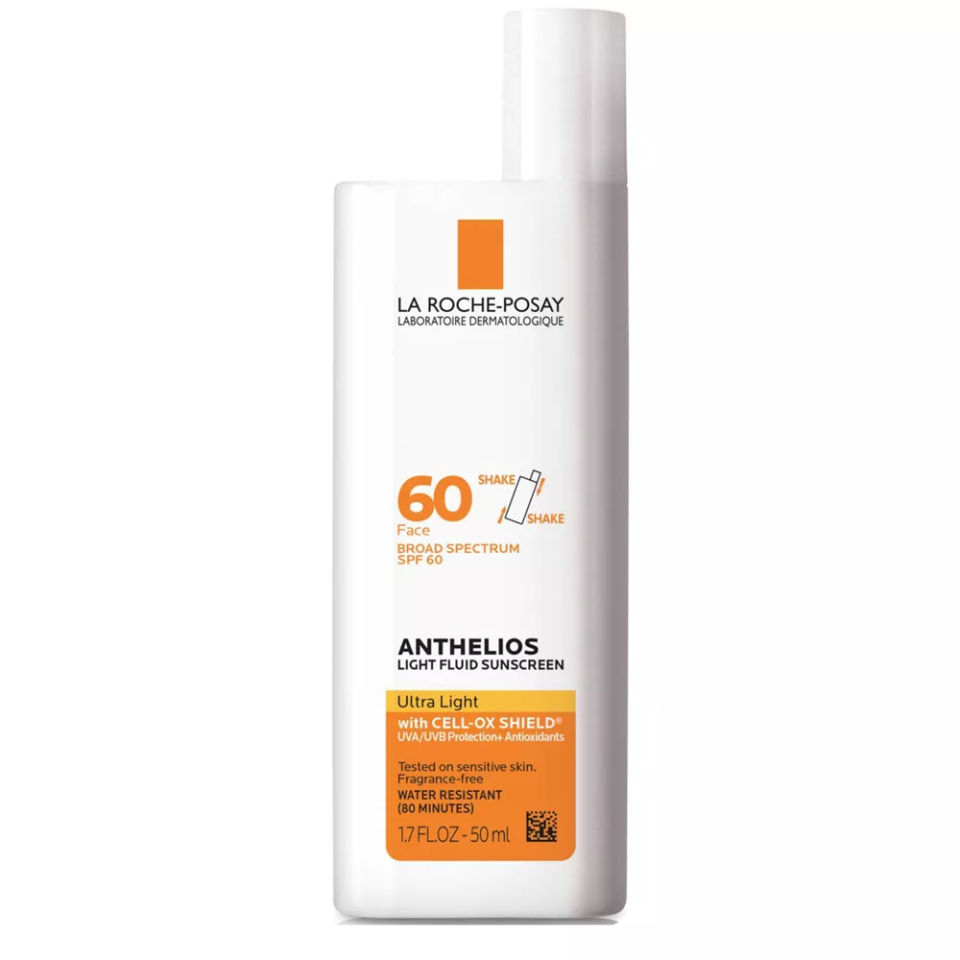
La Roche-Posay Anthelios Ultra-Light Fluid Face Sunscreen
French skin care brand La Roche-Posay’s Anthelios SPF 60 broad spectrum sunscreen is recommended by the Skin Cancer Foundation and is great as a primer for makeup. It contains the brand’s Cell-Ox Shield technology that protects against UVA/UVB, and features an oil-free, lightweight texture that won’t clog your pores. The brand is also a favorite of celebrity facialist Adeena Crown, who works with Cate Blanchett, Demi Moore and Keira Knightley.
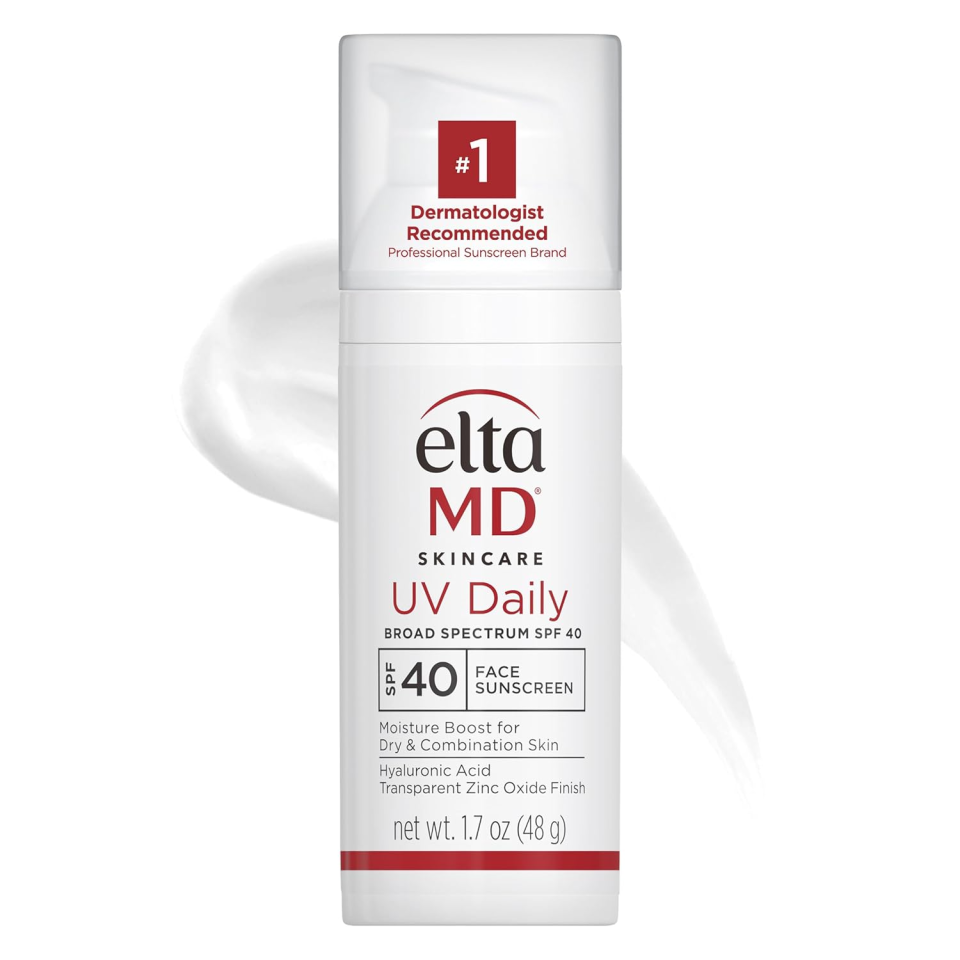
BEST DERMATOLOGIST-RECOMMENDED
EltaMD UV Daily SPF 40 Face Sunscreen Moisturizer with Zinc Oxide
$31.20 $39.00 20% off
Dermatologist Amy Wechsler, Beverly Hills-based board-certified nurse practitioner Jennifer Hollander and even Andy Cohen all recommend EltaMD sunscreen. The brand’s UV Daily broad-spectrum SPF 40 is one of the best sunscreens fo your face and is “effective, [glides] on beautifully and [contains] skin-soothing antioxidants,” Hollander says.
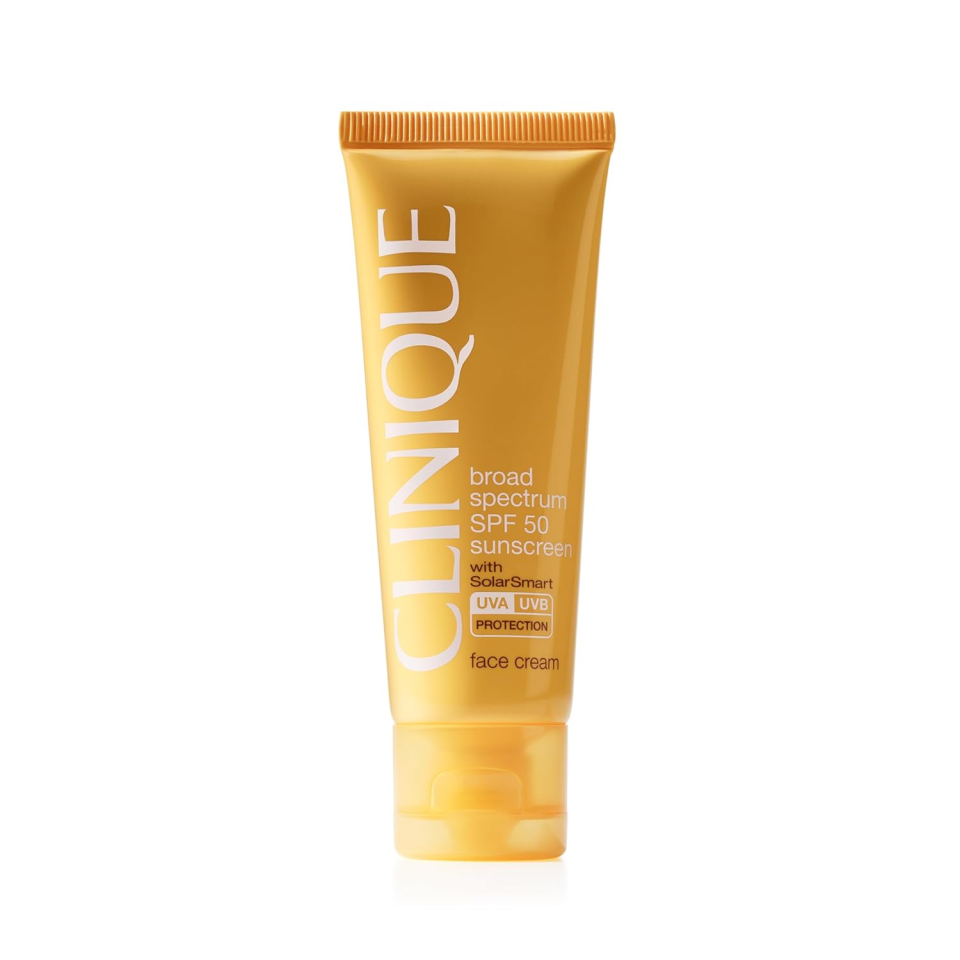
BEST FOR SENSITIVE SKIN
Clinique Broad Spectrum SPF 50 Sunscreen Face Cream
Wechsler says Clinique offers great sunscreens for “a lower price point.” Clinique’s broad spectrum SPF 50 face cream offers UVA and UVB protection and has an oil-free, creamy formula that’s designed for sensitive skin.
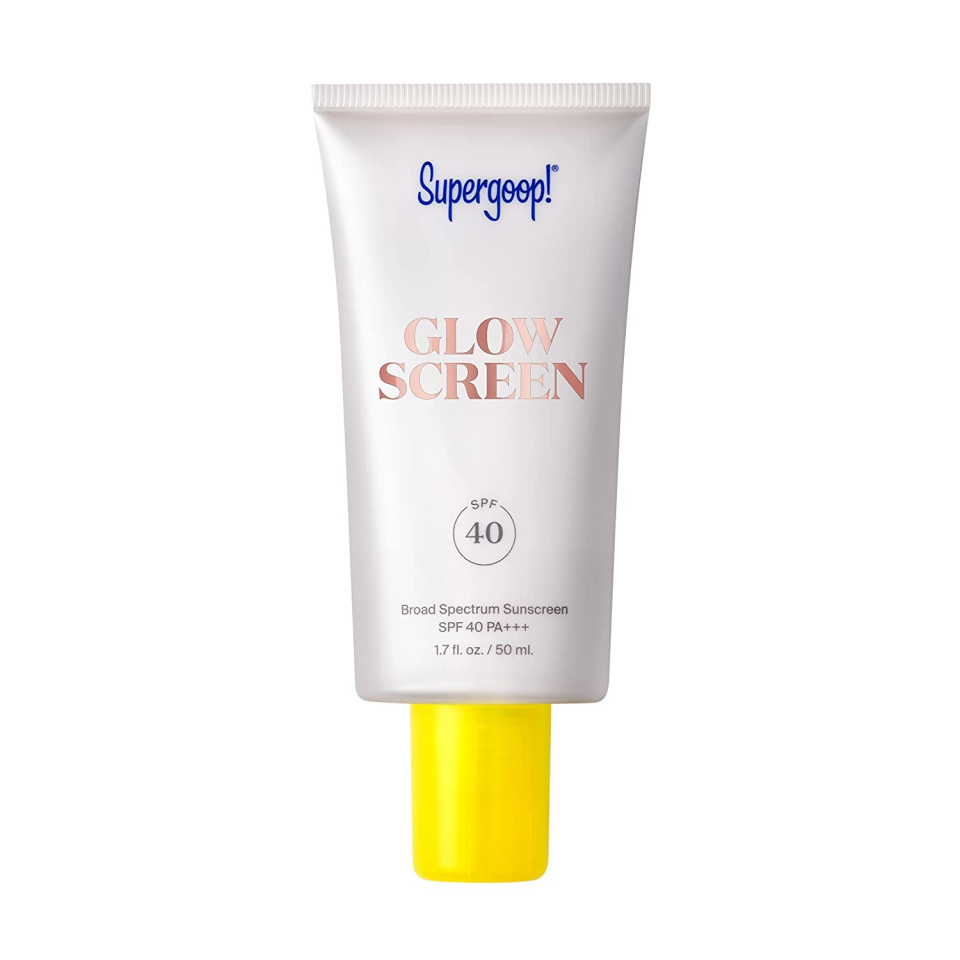
BEST TINTED SUNSCREEN
Supergoop! Glowscreen SPF 40
Supergoop may be best known for their Unseen Sunscreen, but we’re also a fan of their Glowscreen with 40 SPF. It adds a slight shimmer to your skin while combating the sun.
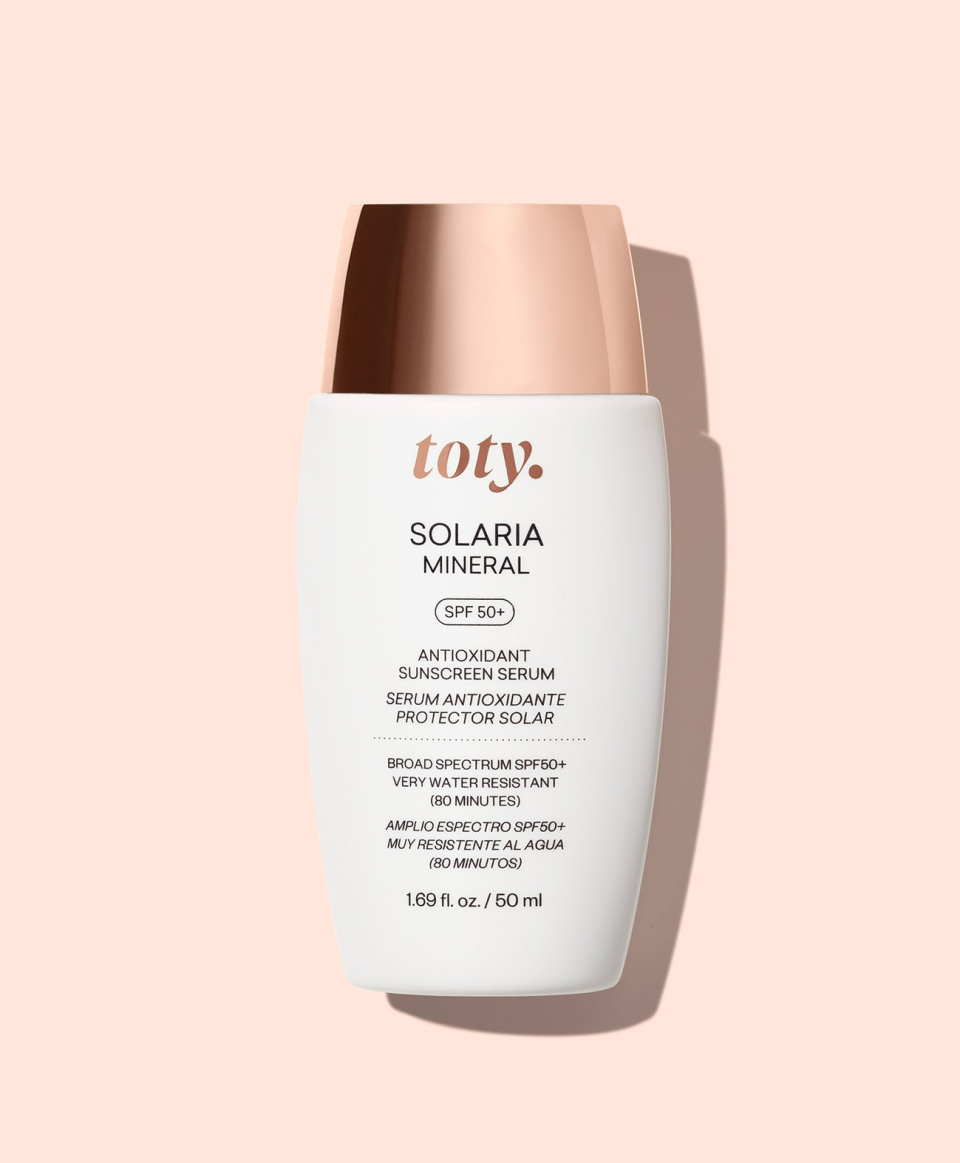
BEST SUNSCREEN SERUM
Toty Solaria Mineral SPF 50 Sunscreen Serum
Sofia Vergara’s new company Toty is part skin care, part sun care. All of their products include an SPF of 50 — including Solaria Mineral, a face sunscreen that feels like a serum while offering protection from harsh rays.
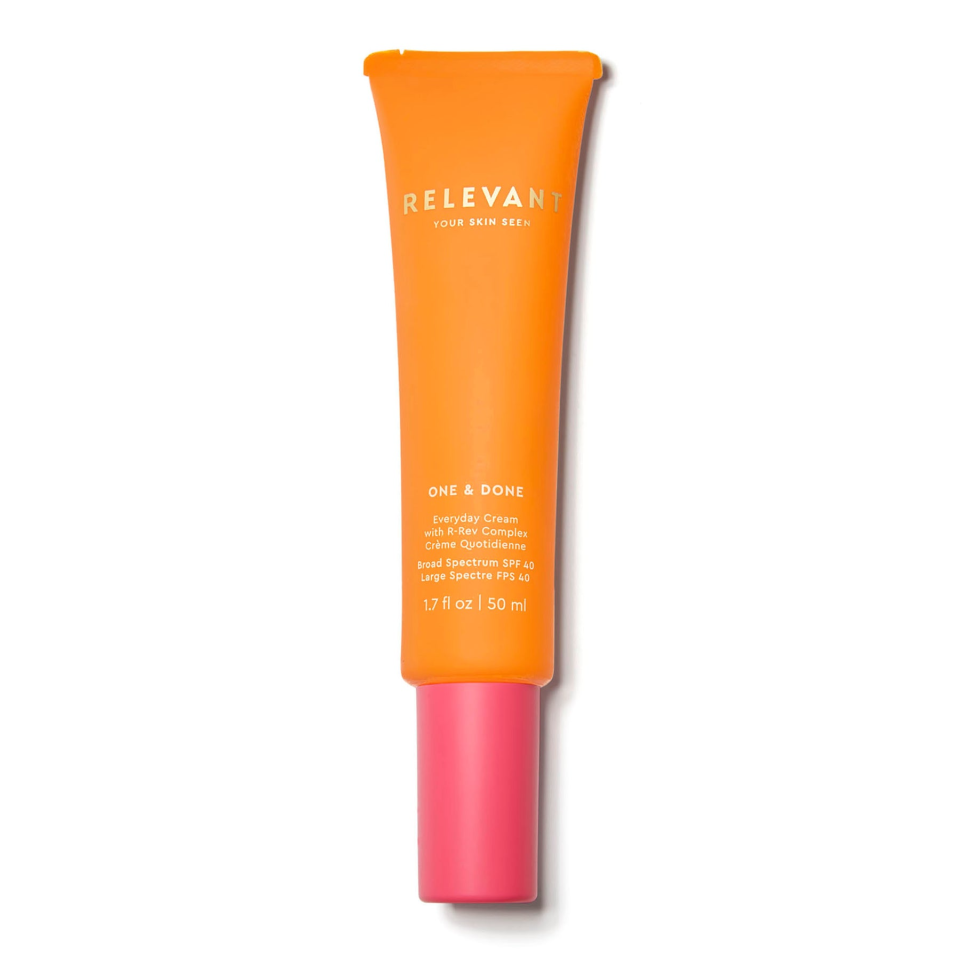
BEST FOR ALL SKIN TONES AND TYPES
Relevant One & Done Everyday Cream SPF 40
Created by beauty entrepreneur Nyakio Grieco, Relevant’s One & Done Everyday Cream with SPF 40 is an antioxidant-rich moisturizer that includes a broad-spectrum sunscreen.
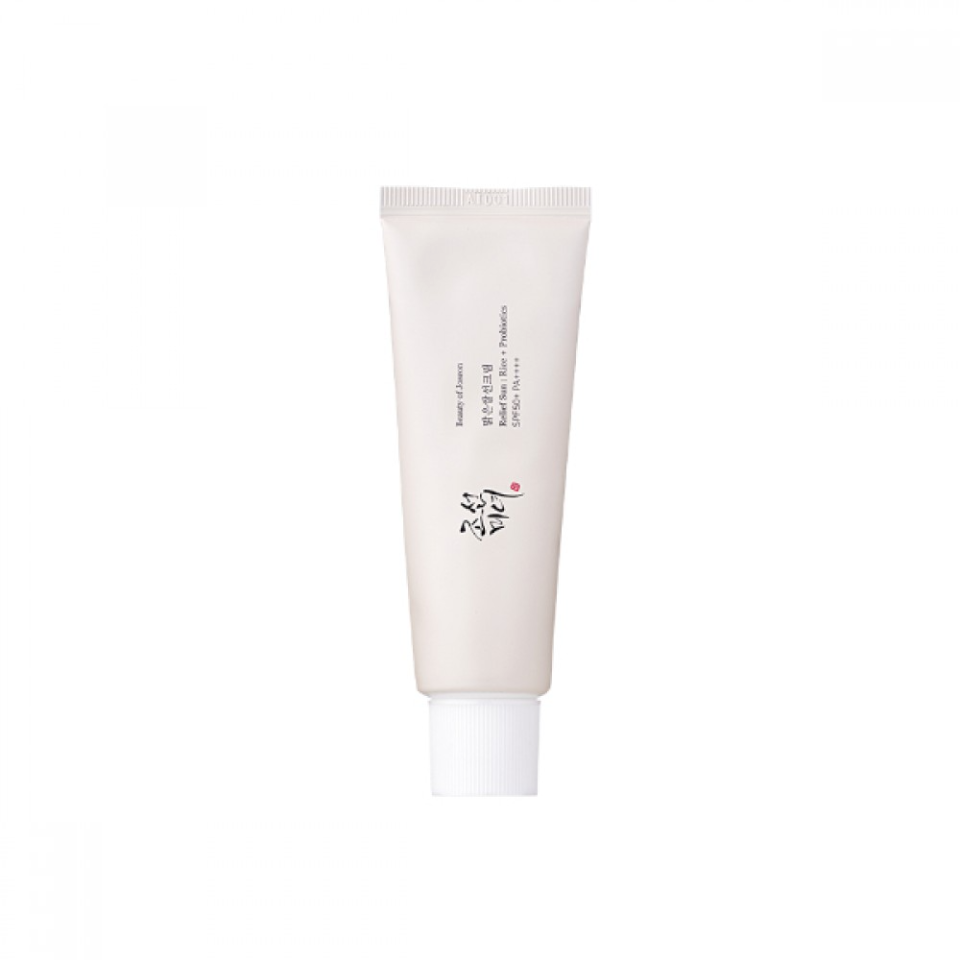
BEST K-BEAUTY SUNSCREEN
Beauty of Joseon Relief Sun Rice + Probiotics Facial Sunscreen SPF 50+ PA++++
The TikTok-viral Beauty of Joseon Relief Sun Rice + Probiotics SPF 50+ face sunscreen is one of the best options for those with sensitive skin. Rice extract and grain-derived probiotics keep the skin hydrated and nourished, and the a lightweight formula absorbs easily and offers broad spectrum protection against UVA and UVB rays. It doesn’t contain oxybenzone, octinoxate or animal-derived ingredients.
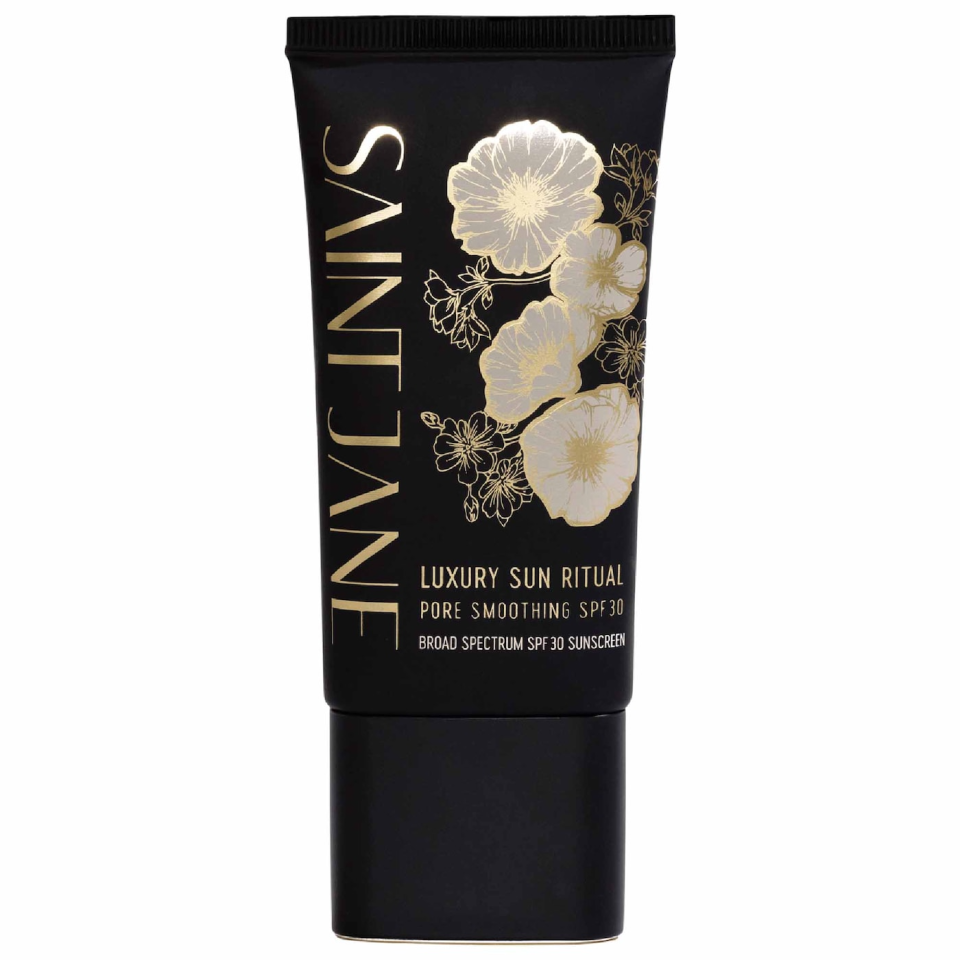
BEST PRIMER SUNSCREEN
Saint Jane Beauty Luxury Sun Ritual Pore Smoothing SPF 30 Sunscreen
Boasting five stars from 94 percent of reviewers, Saint Jane’s Luxury Sun Ritual broad spectrum SPF 30 acts as a moisturizer, mineral sunscreen and a primer in one clean formula. Suitable for all skin types and those prone to oiliness and redness, this sunscreen is beloved by buyers for its ability to minimize the appearance of pores and leave a smooth finish.
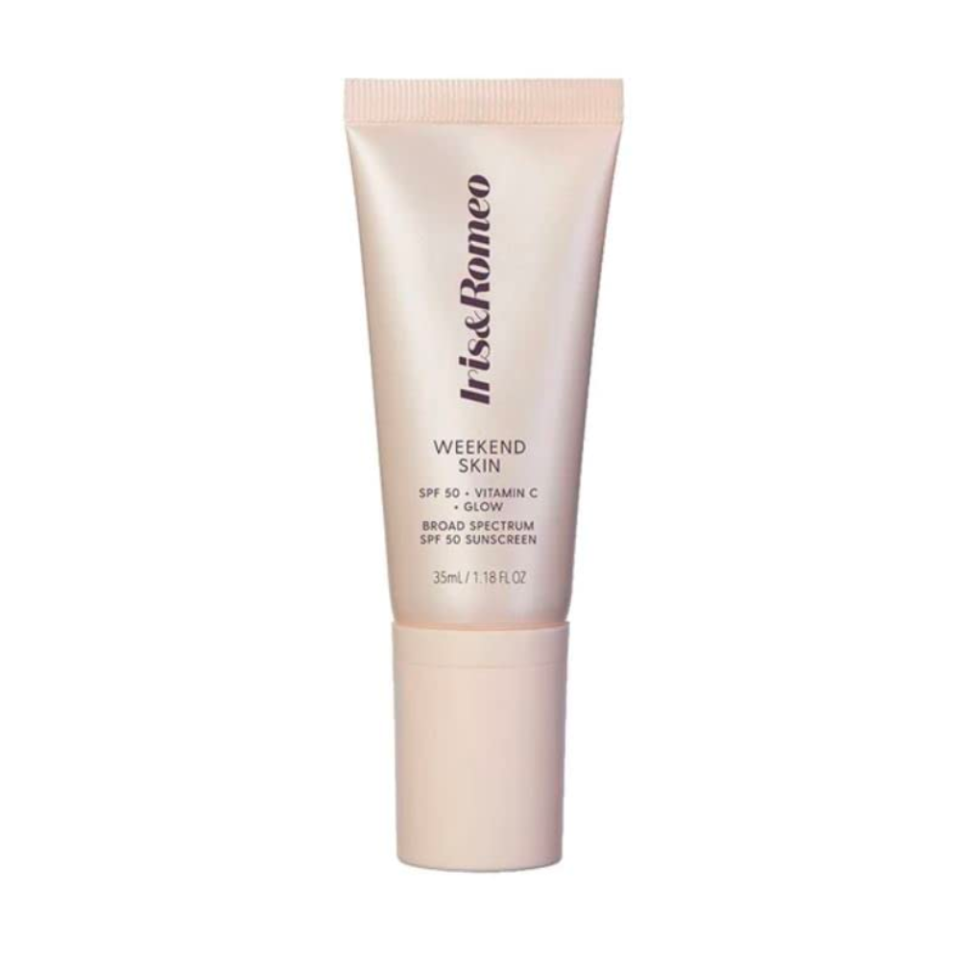
BEST FOUNDATION-LIKE SUNSCREEN
Iris & Romeo Weekend Skin SPF 50 + Vitamin C + Glow
Celebrity makeup artist Katie Mellinger told THR that Iris & Romeo’s Weekend Skin SPF 50 + Vitamin C + Glow is “the best [for] super light second skin foundation. It’s mostly like skin care, and I always recommend it to those who want something like makeup but aren’t used to wearing makeup. It evens out your complexion just enough and is super easy to apply, and it has SPF!”
What we also like? It protects you from the sun while also providing your skin the nutrients it needs to combat wrinkles and sun damage.
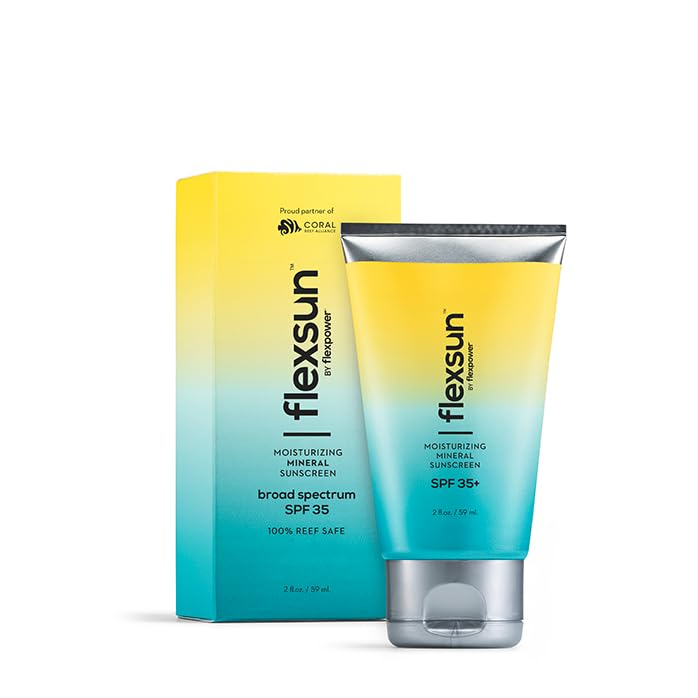
BEST REEF-SAFE SUNSCREEN
FlexSun Moisturizing Mineral Sunscreen SPF 35+
The California pain-relief company offers two sunscreens: the Flexsun Mineral SPF 35+ Sunscreen, a 100 percent reef-safe formula, which is the only sunscreen backed by the Coral Reef Alliance; and the Flexsun Moisturizing SPF 30 sunscreen, the only sunscreen backed by the Melanoma Research Alliance. A portion of both products benefit the two non-profits; so you can feel good while keeping sunrays at bay.
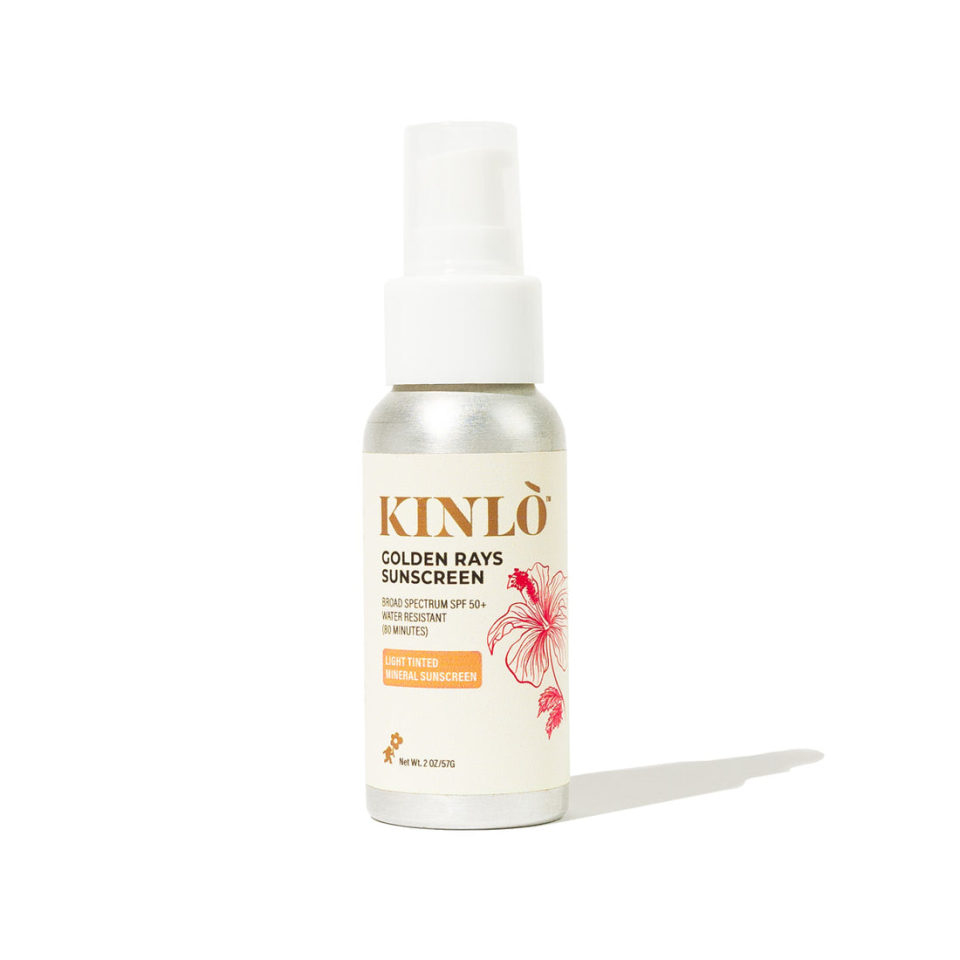
BEST FOR MELANIN-RICH SKIN
Kinlò Golden Rays Sunscreen with SPF 50+
Olympian Naomi Osaka is behind Kinlò, a skin-care brand designed to protect melanin-rich skin from the sun and elements. The tennis star previously told The Hollywood Reporter, “I’ve found that many of the other products on the market are either not tinted enough for melanated skin which means they often leave a white residue, or they are very drying, or in many cases they are both. I wanted to create products that offered great quality moisturizing ingredients and a functional tint that can be worn every day whether it’s under your makeup or on bare skin.”
The Golden Rays Sunscreen with broad spectrum SPF 50+ features a lightweight, mineral-based formula that’s non-comedogenic (so it doesn’t clog pores), water-resistant and sweat-proof. It comes in light, medium and deep tints — and best of all, you won’t get that white cast.
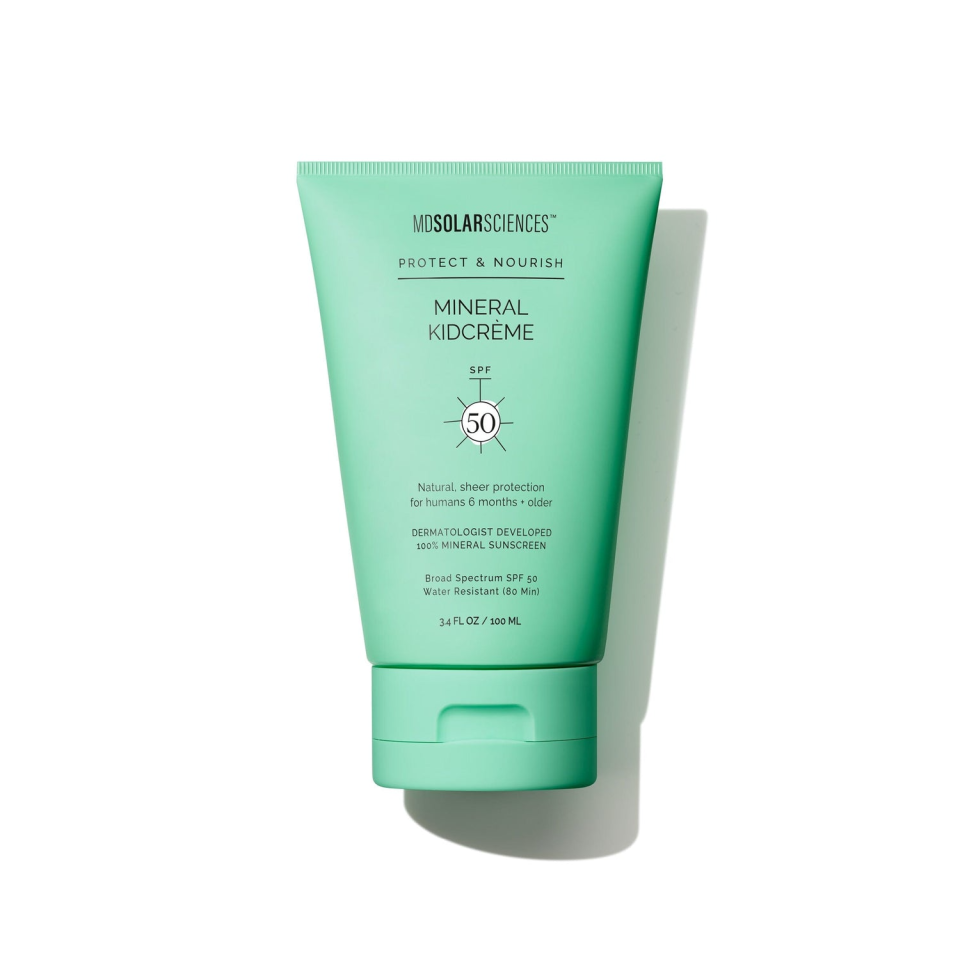
BEST FOR KIDS
MDSolarSciences Mineral KidCrème SPF 50
MD Solar Sciences’ Mineral KidCrème SPF 50 is one of the best water-resistant sunscreens for children six months and older. The unscented product’s texture is as smooth as your kids’ skin is soft. While it’s formulated for a child’s sensitive epidermis, it can absolutely be used by adults for full broad-spectrum protection.
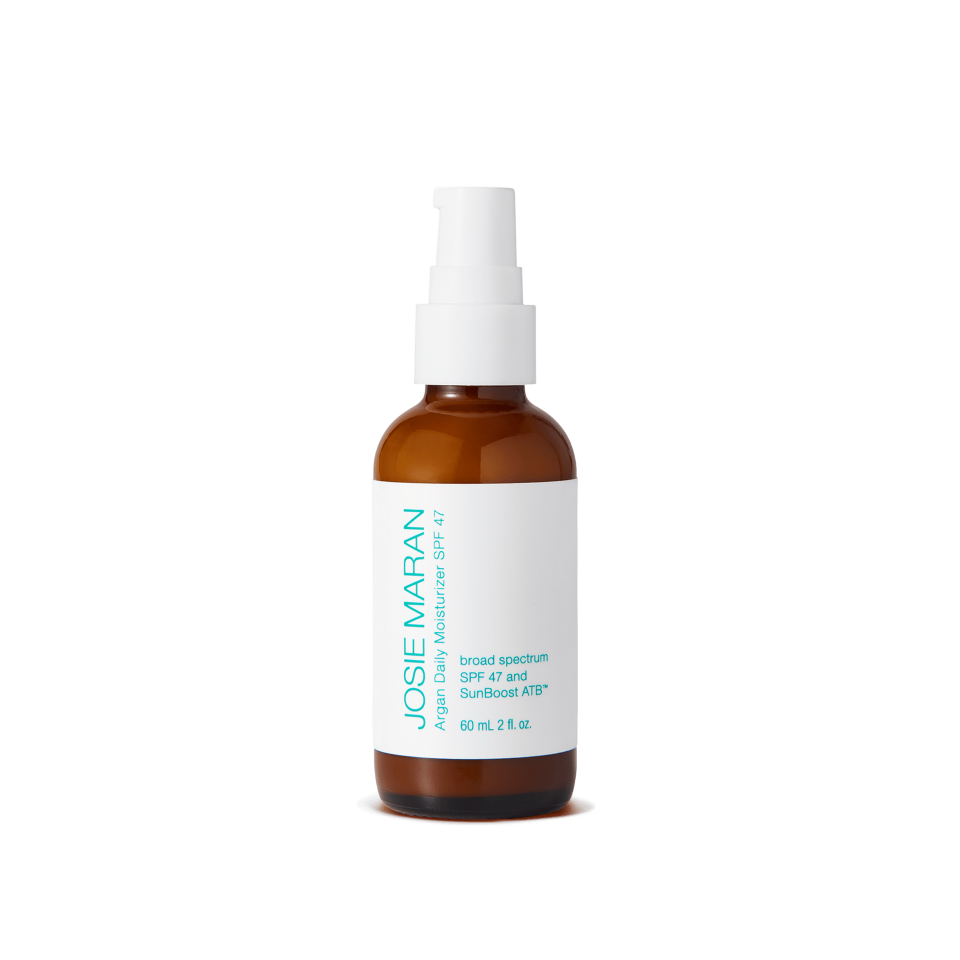
Josie Maran Argan Daily Moisturizer Mineral SPF 47
Clean beauty pioneer Josie Maran’s lightweight Argan daily moisturizer SPF 47 features her namesake brand’s proprietary SunBoost ATB, a blend of pure argan and jojoba oils and green tea that protects, conditions, nourishes and soothes the skin. The antioxidant-rich formula won’t leave a greasy finish, and it absorbs quickly for instant hydration.
Mineral vs. Chemical Sunscreens: What’s the Difference?
“Mineral sunscreens have a bunch of bonuses to them — at least the ones that are approved in the U.S.,” says Dr. Amy Wechsler. Overall, she recommends mineral sunscreens, especially ones that contain at least 10 percent of zinc or titanium (or a combination of both).
Here, Wechsler explains the differences between mineral and chemical sunscreens.
What Are Chemical Sunscreens?
“Chemical sunscreens are molecules. Each molecule covers a narrow range of usually either UVA or UVB,” Wechsler says. “They need a half an hour to work and a lot of people don’t wait that half an hour. And the problem with a lot of the chemical sunscreens is that they can be very greasy and [potentially] clog people’s pores. They also absorb the sun’s UV rays … [which are then] broken down into useless molecules. That’s one of the reasons why chemical sunscreen doesn’t last that long. That’s why I think —and I don’t know if my dermatologist friends would agree with me — the [mineral] ones last longer.”
Dr. Craig Downs, executive director of Haereticus Environmental Laboratory, previously told THR that “chemical ingredients in sunscreens are taking an alarming toll on both the environment and our bodies … Thousands of tourists visit beach communities all over the world, all year long, and the chemicals in the sunscreen they’re wearing are detrimental to the reefs and marine life.”
What Are Mineral Sunscreens?
“Mineral sunscreens are two molecules: either zinc oxide and/or titanium dioxide. Minerals are inert; they’re not chemicals. They do not get absorbed even to the upper layer of the epidermis. They just sit on the surface of the skin and what’s great about them is that they block almost the entire range of UVA and UVB rays,” explains Wechsler. “Mineral sunscreens work the instant you put them on. They’re out in the sun and then they put them on. They’re inert, so you can’t be allergic to minerals. You can totally be allergic to things that the minerals are mixed with — a fragrance, a preservative, a chemical. But the actual molecules themselves can’t induce an allergy and they also don’t clog pores. They’re inherently a little water-resistant and reef-safe.”
What to Consider When Shopping for Sunscreens
The Difference Between Broad Spectrum vs. SPF
Wechsler recommends always getting a broad spectrum sunscreen, which protects against both UVA and UVB rays. Sun protection factor (SPF) only refers to the strength of a sunscreen to protect against UVB. “If it doesn’t say broad spectrum or UVA blocking, and just has an SPF number, then you can’t assume it does anything to block UVA — and you’re only blocking half the rays and you’re only half protected.”
“UVA and UVB rays damage our skin the most. UVB is the one we’re all used to — it’s the one that gives us an immediate tan and an immediate burn — and is blocked by glass. So if you’re in a car, an airplane, or an office by a window, you’re protected by UVB. You’re not going to get a tan or a sunburn,” she says.
“However, I call UVA the ‘silent wrinkle’ because you don’t know you got any of it. It doesn’t give you a tan or a burn, and it penetrates deep. Just like UVB, it damages DNA and causes skin cancer and wrinkles and sun spots and all that bad spot, but you don’t know you’re getting it and it goes through glass. The good news is that there are windows now that can block the UVA rays. So anytime I get a new car, there are clear films that go on the side windows. People are like, ‘Why are you putting sunscreen on before you’re getting on an airplane? That’s weird.’ There are a lot of UVA rays up there. The UVA-protected windows were created to protect art, but they protect our skin really well too.”
Percent of Zinc and Titanium
Sunscreens that contain zinc and titanium protect against UVA and UVB, but Wechsler suggests getting a product with 10 percent of either one or a combination of both. She also recommends testing it on your skin for a white residue.
“Sometimes they’re super white and don’t rub in, and other times they’re more cosmetically elegant if they’re micronized zinc. Sometimes I’ll see one and it’ll advertise as purely mineral or they call themselves mineral sunscreen or sheer zinc […] but then it’s mostly chemicals, and it’s like 2 percent zinc — that’s not doing anything. I always look at the percentage in addition to the ingredients. But you only need the percentages for zinc and titanium.
The chemical sunscreens’ percentages don’t matter — that’s more about the UVB and the broad spectrum. You might apply your zinc and titanium ones every four hours, but your chemical ones every two hours. But there are some chemical sunscreens that are literally gone in an hour and you don’t know. You think you put on sunscreen and then an hour and a half later, you’re getting sunburnt,” adds Wechsler.
Best of The Hollywood Reporter
